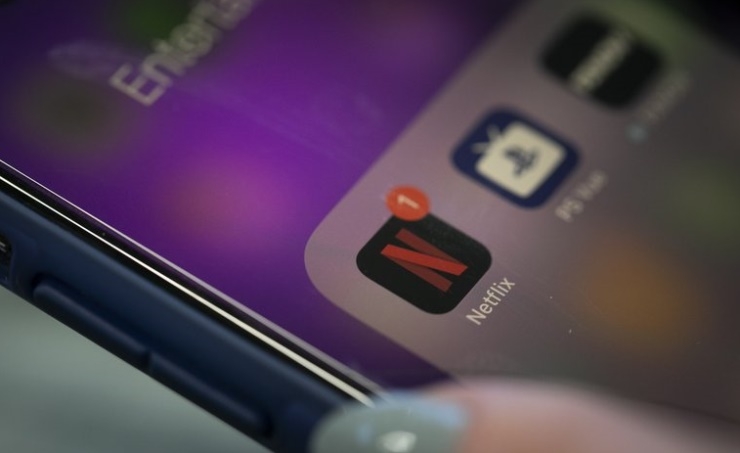Netflix holds its own in the streaming wars - for now
Netflix is holding its ground in the streaming wars, passing its first big test since Apple and Disney launched rival services.
The company added 8.8 million worldwide subscribers during its fourth quarter, surpassing expectations at a time when it faces heated competition, The Associated Press reported.
Netflix had said it expected to add 7.6 million subscribers, and analysts thought the service would fare even better. The increase pales slightly next to the 8.9 million subscribers the service added in the fourth quarter of 2018.
The stock dropped about 2.5% immediately in after-hours trading, likely due to a cautious forecast for the first quarter. But shares rebounded and later traded up more than 2%.
According to The AP, the company — a pioneer in producing streaming media and binge-worthy shows — now boasts more than 167 million subscribers worldwide, bolstered by a list of well-received movies and shows released late last year. That includes the fantasy show “The Witcher” and Oscar nominees “The Irishman” and “Marriage Story.”
The boost helps reaffirm Netflix’s strong standing in the increasingly crowded world of video streaming. The fourth quarter was an important milestone for Netflix, as it was marked its first head-to-head competition with Apple’s $5-per-month streaming service and Disney’s instantly popular $7-a-month option.
Still, it is unlikely to be a smooth road for Netflix. NBC, HBO and startup Quibi are all planning to launch new streaming services soon.
Two big questions loom: How much are consumers willing to pay for each video streaming option? How many will they pay for before reaching subscription fatigue?
Netflix CEO Reed Hastings acknowledged the increased competition in a call following earnings, but said he believes the services are mostly capturing new viewers who are transitioning from traditional TV watching.
“It takes away a little bit from us,” he said of the Disney Plus launch. “But again, most of the growth in the future is coming out of linear TV.”
Netflix has one major advantage over competitors: it has been collecting data on the shows viewers crave for years.
“Netflix’s scale allows it to reach mass audiences, which makes it easier for them to create hits when compared to newcomers to the market,” EMarketer analyst Eric Haggstrom said.
Netflix’s most popular plan costs $13 a month, far more than competitors from Disney, Apple and Quibi. But its price is comparable to HBO Now, and it boasts one of the largest libraries of TV shows and movies, not to mention regularly updated original shows.
Hastings reiterated that Netflix isn’t interested in introducing ads. Noting that the digital advertising market is dominated by companies such as Google, Amazon and Facebook, he said, “there’s not easy money there.”
It’s also less controversial to avoid digital advertising and the scrutiny around companies making customers’ personal information that comes with it, he said.
In its quarterly letter to shareholders, Netflix included a chart of Google search trends that showed people searching more often for “The Witcher” than for competing shows including “The Mandalorian,” “The Morning Show” and “Jack Ryan,” from Disney, Apple and Amazon, respectively.
In the U.S., Netflix added 420,000 subscribers, below its own estimates. Growth in its home country has been slowing in the last year, partly because most people in the U.S. who want Netflix already subscribe.
The company reported profit of $587 million on revenue of $5.47 billion, exceeding expectations.
Netflix said it expects to add 7 million subscribers during the first three months of this year, well below the 9.6 million subscribers it added in the first quarter last year.
Related Posts

